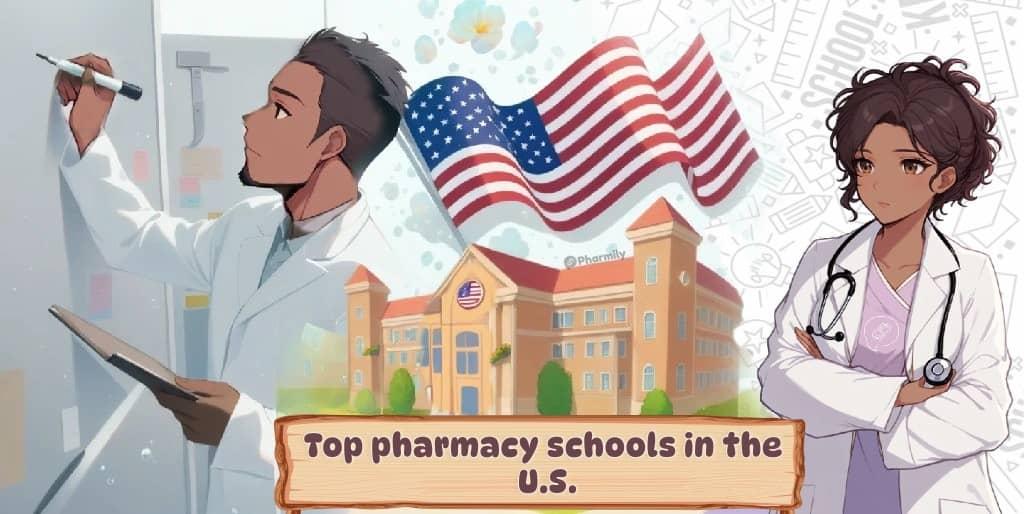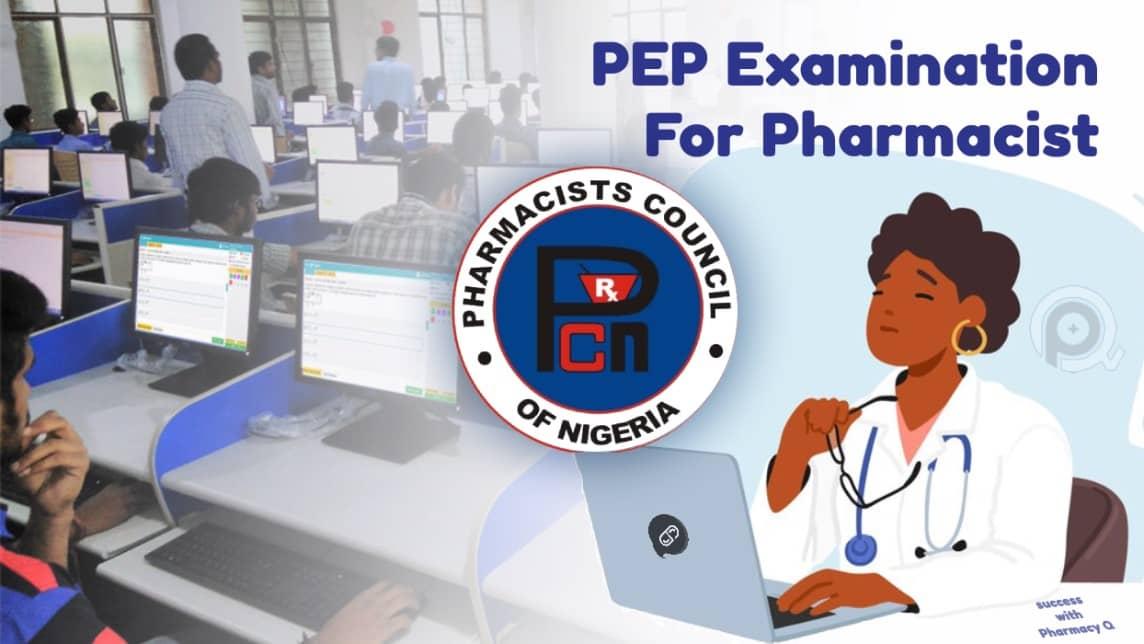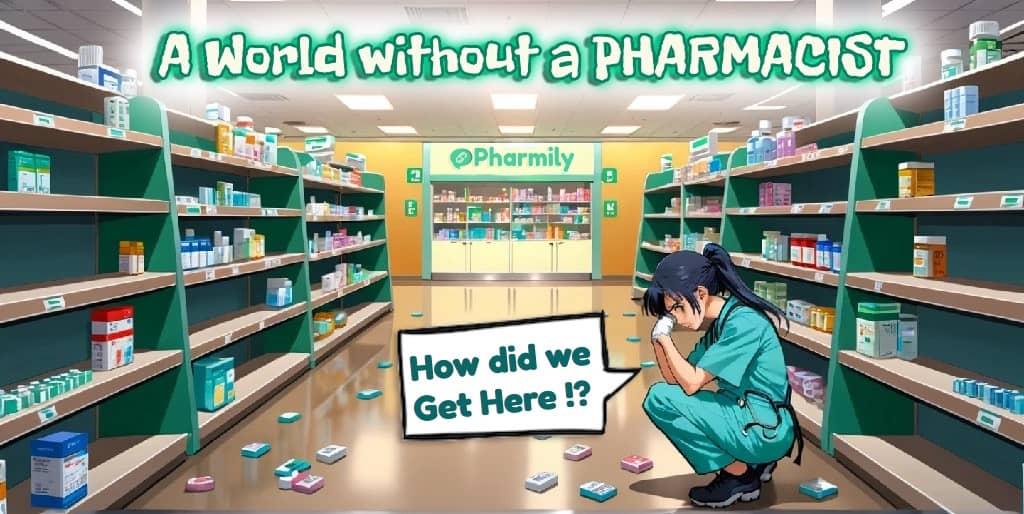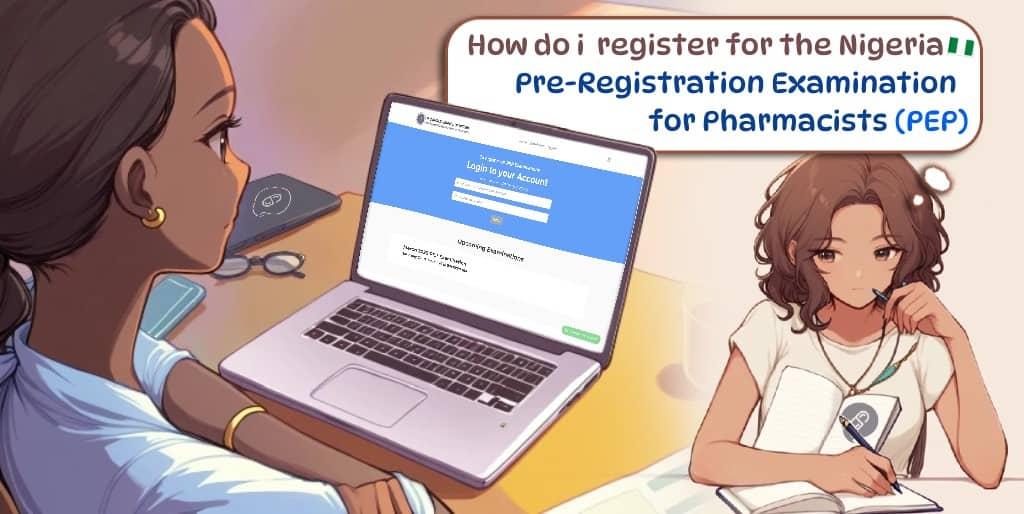Pharmacist vs. Pharmacy Technician: Understanding the Key Differences
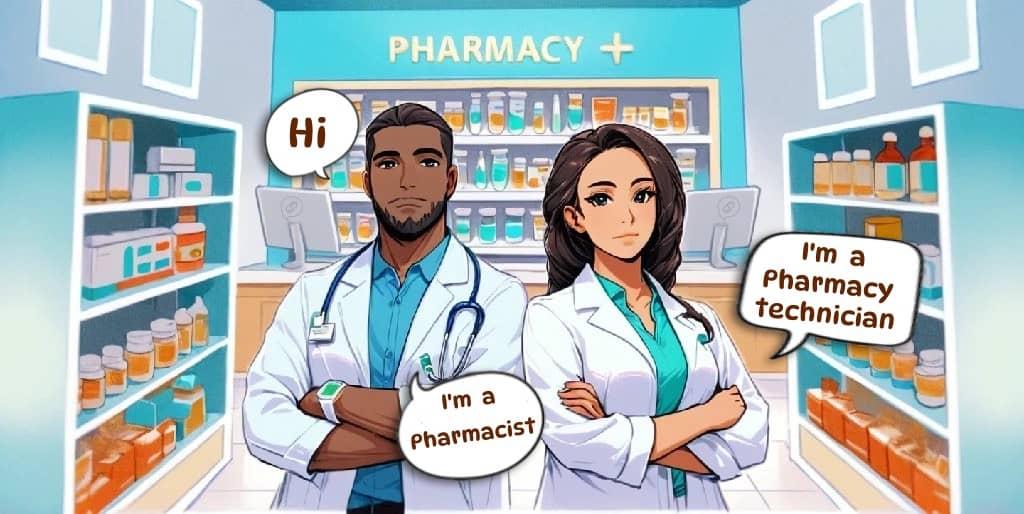
If you’ve ever walked into a pharmacy, you’ve likely interacted with both pharmacists and pharmacy technicians.
While they work closely together to ensure patients receive the right medications, their roles, responsibilities, and career paths are quite different.
Whether you’re considering a career in pharmacy or simply curious about how these professionals contribute to healthcare, this blog post will break down the key differences between a pharmacist vs. a pharmacy technician.
Plus, I’ll answer some common FAQs to clear up any confusion. Before, we drive into the different, let understand the both professions Pharmacist vs pharmacy technician .
Who Is a Pharmacist? 🧑⚕️
A pharmacist is a highly trained healthcare professional who specializes in the preparation, dispensation, and safe use of medications.
They are the medication experts who provide direct patient care, ensuring that prescribed treatments are effective, safe, and appropriate for the patient’s condition.
A Pharmacists often work in hospitals, retail pharmacies, and clinics, and they are a critical part of the healthcare team.
5 Key Responsibilities of a Pharmacist: 🔑
- Patient Counseling: Pharmacists provide detailed instructions on how to take medications, potential side effects, and interactions with other drugs and food.
- Medication Therapy Management: They review patients’ prescriptions and health histories to ensure the drugs prescribed are the best option for their condition.
- Prescriptions and Dosages: Pharmacists verify and approve prescriptions written by doctors, ensuring the dosage and treatment plan is suitable for the patient.
- Compounding and Drug Preparation: In some cases, pharmacists may need to create custom medication formulations for patients (though this is more common in certain settings, like the elderly and new-born).
- Collaboration with Healthcare Providers: Pharmacists often work closely with doctors, nurses, and other healthcare professionals to discuss treatment plans and medication regimens.
Education and Training for Pharmacists: 👨🎓
- Becoming a pharmacist requires a Doctor of Pharmacy (Pharm.D.) degree, which typically takes 6–8 years of higher education (including pre-pharmacy and professional pharmacy programs).
- He / She must complete a licensing exam (e.g., the North American Pharmacist Licensure Exam or NAPLEX in the U.S., Pre-registration Examination for Pharmacists (PEP) for those in Nigeria) and, in some cases, a internship or residency.
- Pharmacists have in-depth knowledge of medications, drug interactions, and patient care.
Who Is a Pharmacy Technician? 👩⚕️
A pharmacy technician works under the supervision of a pharmacist and assists with various tasks within the pharmacy.
While pharmacy technicians play an essential role in the medication dispensing process, they do not have the authority to make medical judgments or provide patient counseling.
Their duties are more focused on supporting pharmacists in managing day-to-day operations in a pharmacy setting.
5 Key Responsibilities of a Pharmacy Technician: 🔑
- Medication Preparation: Pharmacy technicians help prepare and package medications as prescribed by physicians.
- Inventory Management: They assist with maintaining stock levels, ordering new supplies, and ensuring medications are properly stored.
- Customer Service: Pharmacy technicians may interact with customers to gather information, provide medication refills, and answer basic questions about prescriptions.
- Administrative Support: They assist with filing prescriptions, processing insurance claims, and handling other clerical tasks that support pharmacy operations.
- Safety: Pharmacy technicians help ensure that medications are dispensed accurately and that any errors are flagged for review by the pharmacist.
Education and Training for Pharmacy Technicians: 👩🎓
- Becoming a pharmacy technician usually requires a high school diploma or equivalent, followed by a certificate or diploma program (6 months to 2 years).
- Many states or countries require pharmacy technicians to pass a certification exam (e.g., the Pharmacy Technician Certification Exam or PTCE).
- Their training focuses on technical skills like dispensing medications, managing inventory, and assisting pharmacists.
Major Differences Between Pharmacists and Pharmacy Technicians. 🤔 🧑⚕️ / 👩⚕️
| Aspect | Pharmacist | Pharmacy Technician |
|---|---|---|
| Level of Education | Doctor of Pharmacy (Pharm.D.) | High School Diploma (plus certification) |
| Role in Patient Care | Direct patient counseling and medication management | Assists pharmacists, does not provide direct care |
| Responsibilities | Reviews prescriptions, provides counseling, manages medication therapy | Prepares medications, manages inventory, assists with clerical duties |
|
Licensing/ Certification |
Requires state licensure after passing national exams | Certification available but not mandatory in all states |
| Salary | Generally higher due to extensive education and responsibilities | Lower than pharmacists, varies by region and experience |
Common FAQs between Pharmacists vs. Pharmacy Technicians. 🤷♂️🤷♀️ ⁉️
❓ Can a Pharmacy Technician Become a Pharmacist?
✌️ Yes!... Many pharmacy technicians use their experience as a stepping stone to pursue a pharmacy degree and eventually earn a Pharm.D. degree and complete the necessary exams to become a licensed pharmacist.
❓ Do Pharmacy Technicians Have to Be Certified?
✌️ Yes!... Certification for pharmacy technicians is not always mandatory but is highly recommended.
In some states, certification is required by law, and many employers prefer to hire certified technicians because it demonstrates their competency and expertise.
❓ Can a Pharmacist Work Without a Pharmacy Technician?
✌️ Yes!... While a pharmacist can technically work without a pharmacy technician, it is not common.
Pharmacy technicians help pharmacists manage their workload, allowing them to focus on patient care and medication management.
In most pharmacy settings, having a pharmacy technician is crucial for efficiency and safety.
❓What is another name for a pharmacy technician?
✌️ Assistant Pharmacists or Pharmacist Assistant
❓Can pharmacy technicians compound medications?
✌️ In some settings, pharmacy technicians can assist with compounding under the supervision of a pharmacist.
However, the pharmacist is ultimately responsible for ensuring the safety and accuracy of compounded medications.
❓How Much Do Pharmacists and Pharmacy Technicians Earn?
Pharmacists generally earn significantly more than pharmacy technicians due to their advanced education and clinical responsibilities.
According to the
🇱🇷 U.S. Bureau of Labor Statistics, - the average annual wage for pharmacists in 2023 is around $125,000,
whereas pharmacy technicians earn an average of $36,000 per year.
🇳🇬 In (Lagos) Nigeria, a Pharmacist can earn 250k to 300k per month,
while a pharmacy technicians earn 80k to 150k per month.






